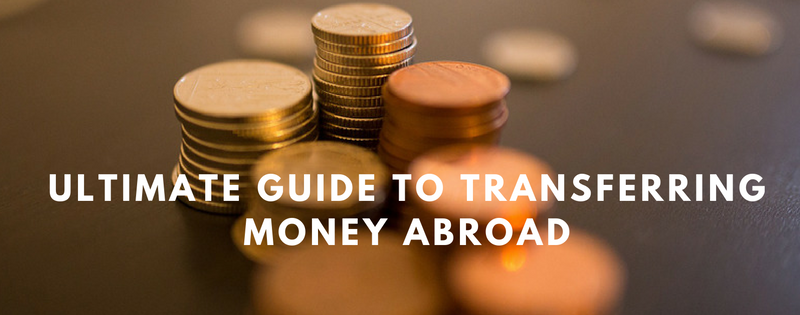Ultimate Guide to Transferring Money Abroad
Transferring Money Abroad – the only guide you are ever going to need.
Sterling’s dramatic depreciation post-Brexit means both individuals and businesses need to ensure that they are getting maximum value for their currency.
Since July’s referendum result in which the UK voted to leave the European Union, the Pound has lost over 16% of its value and a massive 23% year to date. Buying power for both individuals and businesses alike has been dramatically eroded.
Outlook
Political uncertainty around the separation from Europe, the negotiation of new trade agreements and current contractions within the UK economy are all factors that are hindering the Pound’s ability to appreciate.
Conversely, the Eurozone has the full backing of the European Central Bank and a range of monetary policy tools at their disposal to spur growth and raise inflation towards their target levels of ‘close to 2%’. The Dollar currently has tremendous support globally and with a potential interest rate hike in December, it could advance further against Sterling.
Introduction to transferring money abroad
Historically, the local bank was the go to provider to transferring money abroad. However, over the last decade, the number of companies that offer currency and transfer services has exploded, with a variety of options available to both private individuals and businesses.
Savings of up to 80% compared to banks, along with simpler, more streamlined processes and quicker payment times are just a few of the reasons why this market is a fast becoming a preferred alternative to high street banks. Being able to speak with an industry expert at no charge and being walked through the process from start to finish is a personal side to the foreign exchange payments industry that many people do not have access to at their bank.
Money transferring options
Whether your requirement is for an overseas property purchase, school fees, recurring pension payments, or more commercial and is for importing products or services, your bank or a specialist currency provider will be able to assist you with your requirements.
Banks:
- Typically display a day rate, commonly referred to as a tourist rate to counteract daily fluctuations. This can range from 2% – 5% from the true mid-market rate.
- Once you have agreed on a rate and paid your fees, the bank will initiate the transfer to the beneficiary of your choosing. Although the payment may be processed in a short time frame, the funds may take up to up to 3 days to arrive with your intended recipient.
- Banks make a huge amount of money on retail foreign exchange along with having huge overheads, so they have no incentive to offer their customers a better deal.
Specialists:
- With a specialist currency provider, you will be able to access more competitive rates. The volume of currency that these companies purchase is far greater than individuals and businesses, and the cost savings can be passed on to you, their client.
- Payments can be set up, initiated and settled into a beneficiary’s bank account the same day, at no extra cost.
- Most companies will be able to keep you updated throughout the process via telephone or email so that you have a clear picture of what is happening and what stage of the cycle your payment is in.
- If you are new to international payments, you have the option to speak with a dedicated account manager who will walk you through the process. If you have recurring payments, working with a relationship manager who will understand your needs may be beneficial.
Types of transfers
In the complex financial world, there are many products with exotic names that you may have or will come across. However, three main types are used.
Spot
The most basic type. Agree on an exchange rate, make payment to the provider and they will pay your beneficiary same day, or anytime up to 2 days ahead.
Forward contracts
Agree on a rate up to 1 year into the future. Ideal if you wish to know exactly how much currency you want to buy for a predetermined date. Typically, a small deposit can secure this type of contract
Limit order
Agree upon a rate that you would like to reach, and upon the market doing so, your provider will buy a predetermined amount of currency for you. Ideal if you have time on your side before needing the funds, however, the risk is the market drops, and you end up paying more.
What a person should be aware of before transferring money abroad?
In the UK the financial services compensation scheme (FSCS) covers deposited funds with banks up to the sum of £75,000. For specialist payment providers that provide money transfer services (and do not offer other services such as lending and deposit taking for investment and savings products), the rules are slightly different and the FSCS does not apply.
Check that the firm you are planning on using is either “registered” or “authorised and regulated” by the Financial Conduct Authority (FCA). These firms must meet certain standards and provide the FCA with information so that they can monitor their business. However, firms that are only “registered” with the FCA have a very small turnover and as such they do not have to safeguard customers’ funds nor do they have to provide the FCA with as much detail about their business as a firm that is “authorised and regulated”.
Firms that are “authorised and regulated” by the FCA have a much higher turnover and must meet the additional standards set out by the FCA. Amongst other things including providing the FCA with annual reporting information, “authorised and regulated” firms must also comply with the safeguarding requirements as per the Payment Services Regulations 2009, which states that they must keep relevant client funds segregated from any other funds that they hold. The most common way that authorised firms meet this requirement is by placing relevant funds in a separate safeguarding client account that they hold with an authorised credit institution such as their bank. By doing so, in the event that the authorised firm becomes insolvent, client funds can easily be traced and returned.
Do your homework on the firm that you wish to use. At some point, your money will be passing through this company on to your beneficiary bank. Like many things in life, “buy cheap, buy twice” as the saying goes. This goes with the currency world as well. You need to consider all the above and make an informed decision that you are comfortable with. You need to weigh up the benefits of price versus speed along with the quality of service.
Conclusion
In summary, there are numerous companies positioned to provide you with a service that you require.
Who you choose to use will depend on upon many factors. Whether it be a large, one-off purchase or lower, recurring monthly payments, you should always ensure that you:
- Do your research on the company and check their authorisations with the FCA
- Read their terms and conditions and question anything you are unsure of
- Open a free account in advance of wanting to make a payment
- Confirm the actual exchange rates and how much money will be received
- Agree upon any associated fees
- Clarify when your payment will arrive
- Receive documentation confirming the agreed rate and payment details
Many companies can offer a competitive price. If you have a large payment or ongoing requirements, you may want to work with a company who can provide you with more than just a payment service. Long term relationships with the same point of contact, who understands your requirements and works with you may be of more value.



